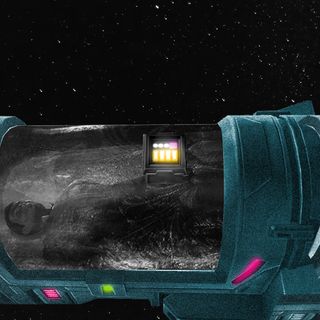Flushing wet wipes get it out of people’s houses and into the habitats of aquatic animals. The plastic in these wet wipes is now forming “islands” in the U.K.’s rivers after being rinsed out of human homes.
“[R]ivers [are] changing shape after the products pile up on their banks,” The Guardian reported. Not only that, reportedly, 90% of the 11 billion wet wipes used by the population of U.K.’s contains some form of plastic that turns into microplastics when broken down. This, of course, subsequently enters the water supply and also the food chain after being ingested by animals.
Just this September, researchers found an alarming amount of plastics in the feces of human babies — suggesting they are ingesting microplastics. The wet wipes, which are often used to clean babies after they poop, may also be contributing to the microplastics they ingest.
At present, there’s so much microplastic in our food that scientists believe we could be eating one credit card worth of plastic each week.
“As a mother of four children I have used a lot of wet wipes and I completely understand the pressures that parents are under and how useful wet wipes are… [But] I know that parents also want to do the right thing for the environment,” Fleur Anderson, a Member of the U.K.’s Parliament, told the press.
Related on The Swaddle:
Scientists Detect Microplastics in Placentas of Live Pregnancies for the First Time
Other sources of microplastics aside, wet wipes — and their “island-forming behavior” — are becoming such a huge menace for the country that Anderson is seeking laws to control the problem. If her bill becomes a statute, it would prohibit the manufacture and sale of wet wipes containing plastic.
“Globally, 100 million animals die each year from plastic waste alone… We need legislation because the scale of the problem is so big, so damaging, and increasing so fast,” Anderson said.
She reported sighting a “wet-wipe island” on the Thames during a recent visit to the river.
Plastic-free wet wipes do exist, at present, and are made from bamboo and other plant fibers. Anderson believes a complete ban on wipes that contain plastic would not only boost the production of plastic-free wipes but also make them cheaper.
“Unfortunately, with the modern lifestyle, babies are exposed to so many different things for which we don’t know what kind of effect they can have later in their life,” Kurunthachalam Kannan, an environmental health scientist at New York University School of Medicine, who co-authored the study on baby poop, had said in a statement.
“We need to make efforts to reduce exposure in children. Children’s products should be made free of plastics,” he had added. Perhaps, it’s time to apply his advice to wet wipes too.




